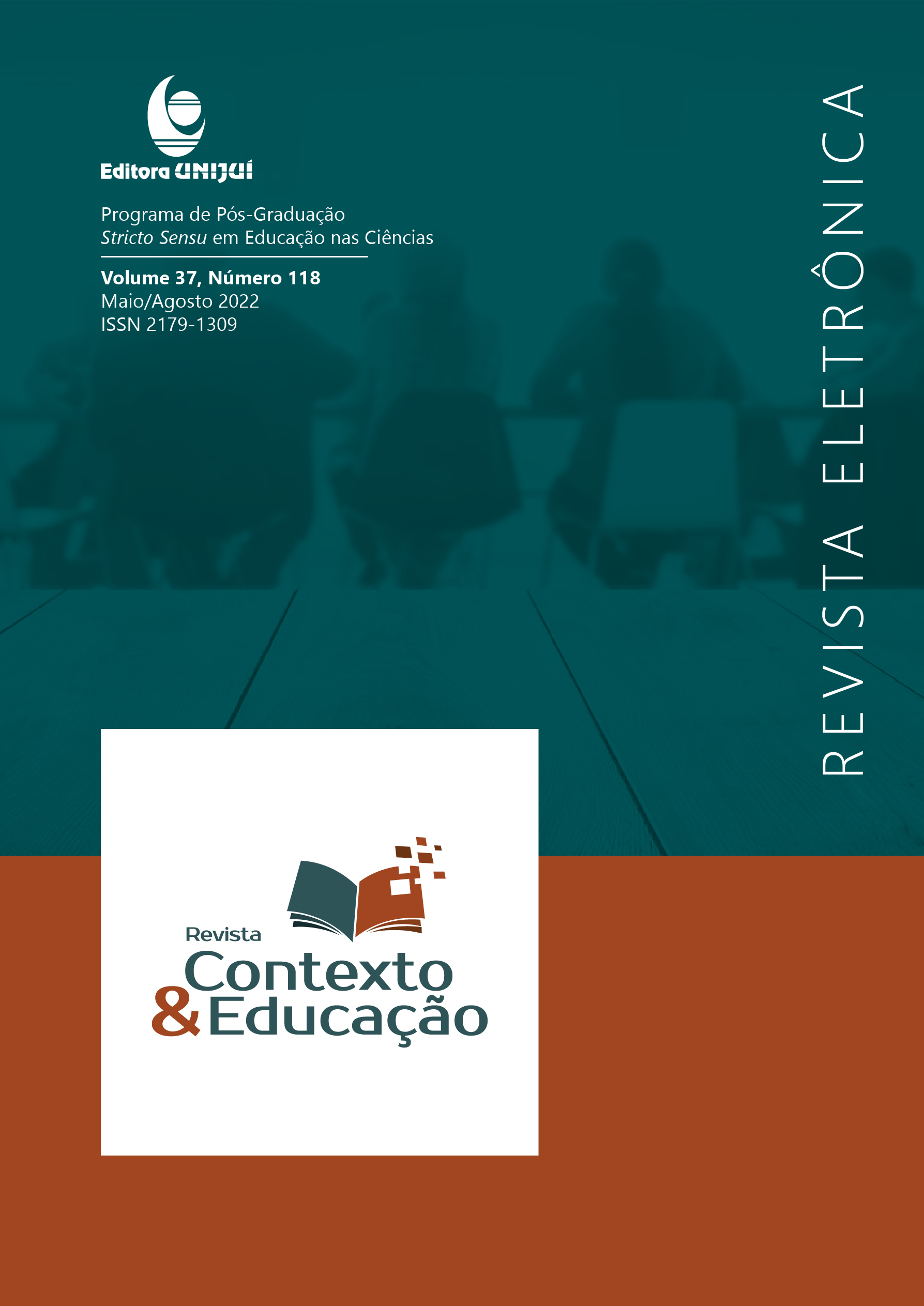Formação de Leitores: As Concepções de Linguagem no Contexto das Práticas Alfabetizadoras
DOI:
https://doi.org/10.21527/2179-1309.2022.118.12848Palavras-chave:
Linguagem., Alfabetização, Formação de leitores.Resumo
Este artigo tem como objetivo analisar as concepções de linguagem, no discurso e na prática, de uma professora do 2º ano do Ensino Fundamental. Os dados aqui apresentados constituem-se em um recorte de uma pesquisa realizada no período de 2017 a 2018. Desse recorte surgiram as seguintes questões norteadoras: Quais os impactos das concepções de linguagem na relação ensino e aprendizagem no que diz respeito à alfabetização das crianças? De que maneira o discurso da professora revela o seu foco na alfabetização e como isso reflete-se em sua prática? Como sujeito desta pesquisa temos a professora alfabetizadora da Escola Pública Municipal de Ensino de São Luís, Maranhão, com a qual foi feita entrevista como instrumento de geração de dados, bem como a observação participante. Os estudos estão pautados em Bakhtin e Volochinov (2014), Gontijo (2005, 2014), Kleiman (2013), Coracini (1995), Geraldi (2014), Smith (1989, 1999), Jolibert (1994), entre outros. Como resultados, concluímos que a formação de leitores está relacionada diretamente ao que precisam saber os professores alfabetizadores sobre o ato de ler para o ensino desse objeto cultural.
Downloads
Publicado
Como Citar
Edição
Seção
Licença
Ao publicar na Revista Contexto & Educação, os autores concordam com os seguintes termos:
Os trabalhos seguem a licença Creative Commons Atribuição 4.0 Internacional (CC BY 4.0), que permite:
Compartilhar — copiar e redistribuir o material em qualquer meio ou formato;
Adaptar — remixar, transformar e criar a partir do material para qualquer fim, inclusive comercial.
Essas permissões são irrevogáveis, desde que respeitados os seguintes termos:
Atribuição — os autores devem ser devidamente creditados, com link para a licença e indicação de eventuais alterações realizadas.
Sem restrições adicionais — não podem ser aplicadas condições legais ou tecnológicas que restrinjam o uso permitido pela licença.
Avisos:
A licença não se aplica a elementos em domínio público ou cobertos por exceções legais.
A licença não garante todos os direitos necessários para usos específicos (ex.: direitos de imagem, privacidade ou morais).
A revista não se responsabiliza pelas opiniões expressas nos artigos, que são de exclusiva responsabilidade dos autores. O Editor, com o apoio do Comitê Editorial, reserva-se o direito de sugerir ou solicitar modificações quando necessário.
Somente serão aceitos artigos científicos originais, com resultados de pesquisas de interesse que não tenham sido publicados nem submetidos simultaneamente a outro periódico com o mesmo objetivo.
A menção a marcas comerciais ou produtos específicos destina-se apenas à identificação, sem qualquer vínculo promocional por parte dos autores ou da revista.
Contrato de Licença (para artigos publicados a partir de outubro/2025): Os autores mantém os direitos autorais sobre seu artigo, e concedem a Revista Contexto & Educação o direito de primeira publicação.


